Berlinale & EFM Review Daily










VERDICT: Mexican director Lila Avilés shows sensibility and a strong hand in 'Totem', her second feature.
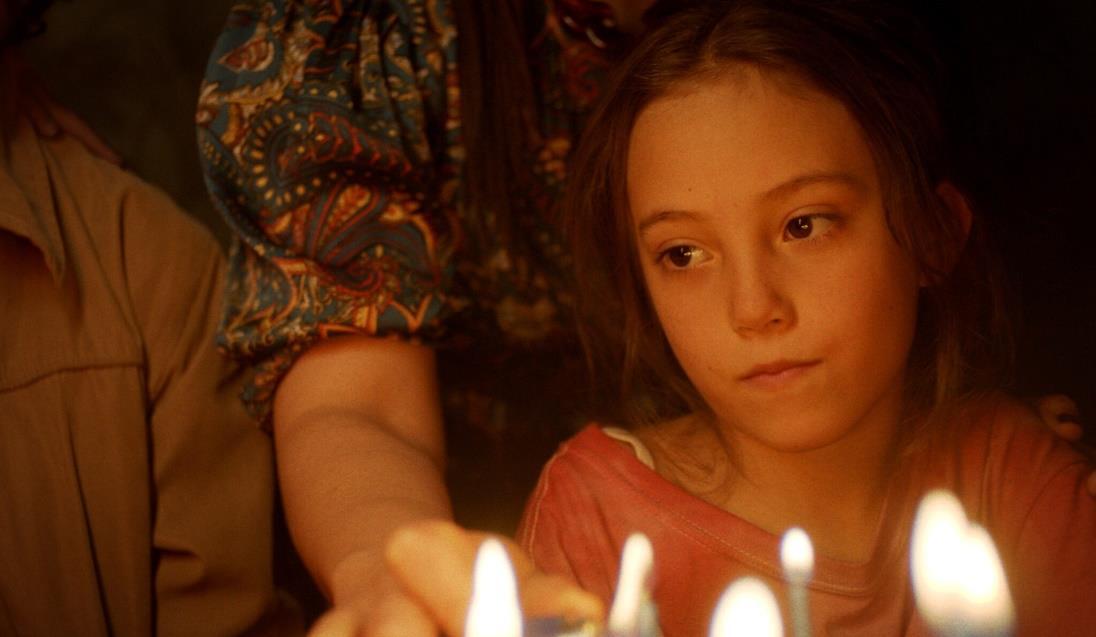
Lucy Virgen, February 20, 2023
Lila Avilés’ directing debut made a lot of noise on the international scene in 2018. The Chambermaid, her first feature, won awards from Havana to Minsk. This raised a lot of expectations for the screening of Totem, her second film, which bowed as part of Berlin competition. Expectations were rewarded with an intimate film and impeccable direction.
Totem follows an afternoon in the life of Sol, a seven-year-old girl. She spends the day at her grandfather’s house while her mother works; meanwhile, her aunts, uncles and grandfather prepare a birthday party for her sick father.
It soon becomes clear that something serious is going on in the family, just from the way the Sol is treated (Continues page 4)
VERDICT: A hard-pressed couple in Yemen’s port city of Aden search for a doctor to perform an abortion in Amr Gamal’s excellent, understated yet hard-hitting portrait of a family and their city in desperation.
Jay Weissberg, February 20, 2023 There’s every reason to celebrate the completion of any Yemeni feature, given the pummeled country’s horrific ordeal since the civil war began almost a decade ago, but The Burdened is far too strong a film to be saddled with merely a pity prize. In his second feature, director Amr Gamal (10 Days Before the Wedding) presents a clear-eyed look at what life is like in war-torn Aden, where a formerly middle-class couple Full Review
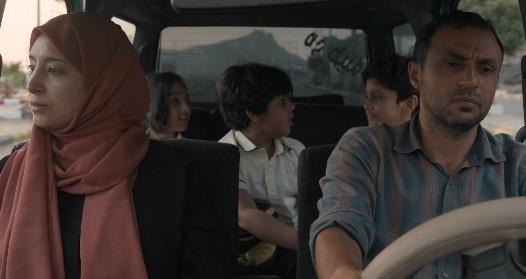
VERDICT: Director Zhang Lu's gentle, impressionistic story set in historic old Beijing is a rambling account of complicated family ties and individual loneliness.
Deborah Young, February 20, 2023
“A poet-turned-food critic who could be the contemporary Chinese version of J. Alfred Prufrock shuffles through a mid-life crisis in The Shadowless Tower (Bai Ta Zhi Guang), the latest offering from director Zhang Lu (Yanagawa). The meandering screenplay and feckless hero (played by Yanagawa actor Xin Baiqing) recall the mellow, I-give-up atmosphere that Korean director Hong Sangsoo has made so charming and oddly popular in his work, though here there is much more incident and interwoven family relations, ending the resemblance. Though it takes most of its 2 ½ hours to get there, The Shadowless Tower does finally blossom into the winsome sketch of a man unable to commit himself to love or even gear up for the second half of his life, an Full Review


VERDICT: Debutant director Giacomo Abbruzzese's Berlin competition contender is a stylish but silly yarn about disco-dancing soldiers and shamanic eco-warriors.
Stephen Dalton, February 20, 2023
Destiny sets two strangers on a lethal collision course in Disco Boy, one of the more stylish and intriguing world premieres in the main Berlinale competition this year. Featuring rising German screen star Frank Rogowksi (Victoria, Transit, Passages) as a French Foreign Legion volunteer fighting armed ecological militants in Nigeria, writer-director Giacomo Abbruzzese’s beautifully shot debut feature is visually impressive but thin as drama, its continent-hopping plot hinting at deeper revelations that turn out to be hidden shallows. Drawing spurious parallels between jungle warfare and dancefloor
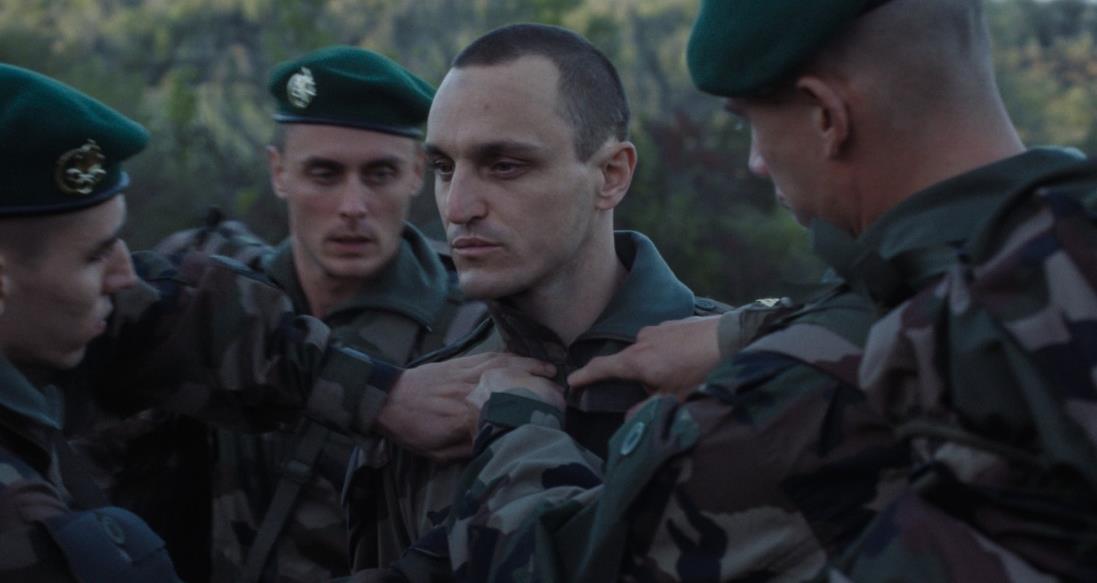
hedonism, Disco Boy feels at times likes an Apocalypse Now (1979) remake directed by Nicolas Winding Refn.
All the same, the Paris-based Abbruzzese’s off-beat fantasy drama is enjoyable on its own terms, with compelling performances, imaginative visuals and a throbbingly sensual score by Vitalic, aka French electronic composer Pascal Arbez-Nicolas. Rogowski’s growing international profile should also help with further festival bookings and niche art-house appeal. If you are the kind of blue-sky thinker who believes the best Full Review
The relatives are not just kind and loving; they are obsequious and at times overwhelming. But as is often the case with adults all over the world, after a while they tend to ignore children of an age where they don’t need constant attention and their help is not required. These children, left to their own devices, spend their time wandering about.
The entire film is well directed, but it is in these moments that Lila Avilés shows her talent. The hours that Sol spends alone, walking around the house, have their own rhythm: they are fluid, natural, and very intimate. The audience accompanies Sol and shares her experiences when she is watching insects; listening to conversations that include therapy sessions; drinking wine and asking questions at the phone´s virtual assistant. The film has echoes of Carlos Saura’s Cría cuervos and Victor Erice’s The Spirit of the Beehive – inadvertently so, because at the press conference in Berlin, the director said she had not seen these films.
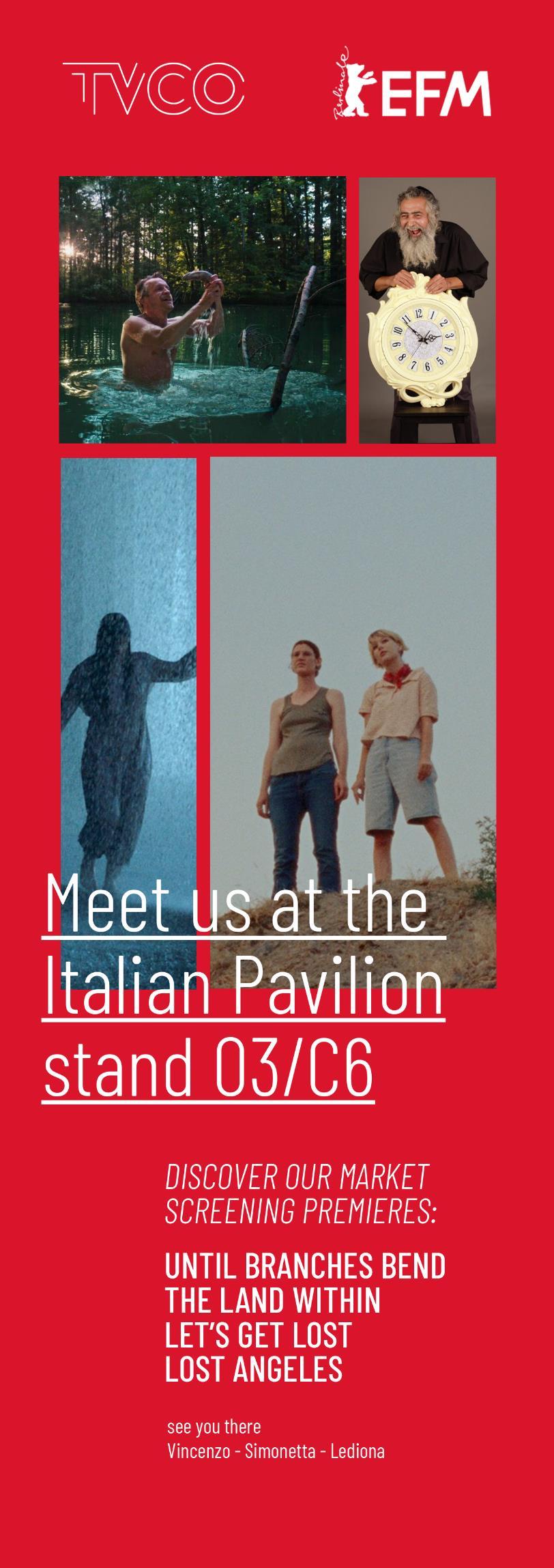
In the role of Sol, Naima Sentíes acts more with her gaze and facial expressions than with her scant dialogue. She knows what is going on and transmits it to the audience. Diego Tenorio’s camera remains especially close, at times intimate in her presence.
The script, also written by the director, is very accurate in depicting the speech and behavior of friends and family. They all speak with the affection and care that borders on pity, so common in the presence of an ill person. The only part that feels forced and serves no purpose in the script is the presence of a woman who is a sort of medium or a healer. It feels like unnecessary comic relief in a setting where her “healing” was not needed.
From a cast that works well as a group – a family, in this case – Teresita Sánchez (who plays Mini Toy in The Chambermaid) stands out as a caregiver so sensitive and efficient Full Review
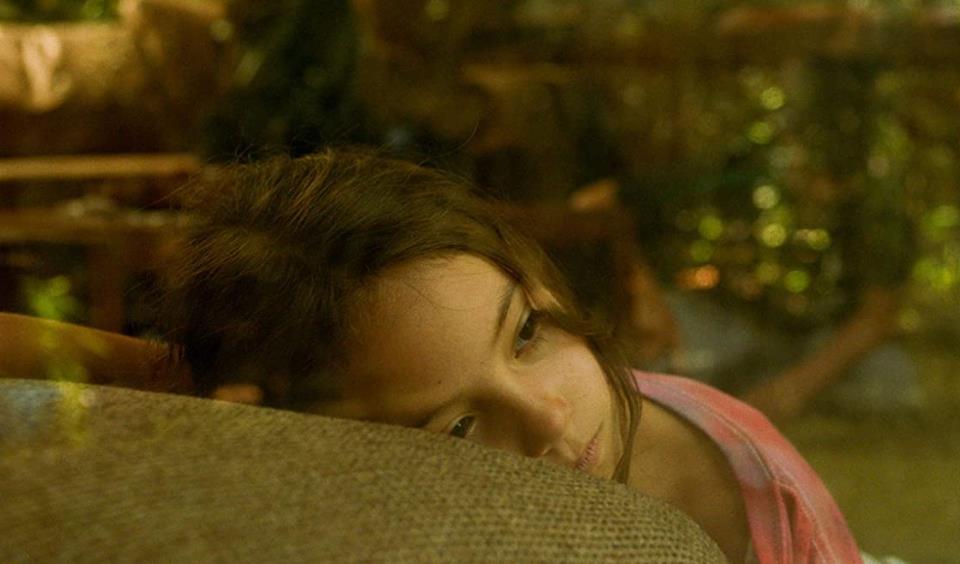

VERDICT: La mexicana Lila Avilés dirige con sensibilidad y de forma impecable Tótem, su segunda película, en competencia en Berlín.
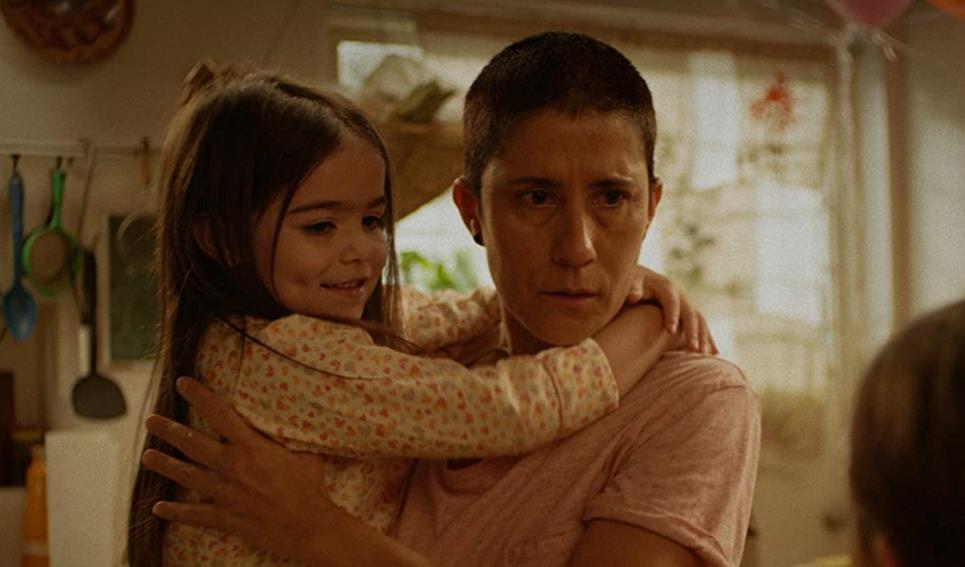
Lucy Virgen, February 20, 2023
Lila Avilés debutó en el panorama internacional en 2018 con inusitada fuerza. La camarista, su ópera prima ganó premios desde La Habana hasta Minsk. Lo cual causó muchas expectativas por la presentación de Tótem, su segunda película en competencia en el Festival de Berlín. Esperanzas compensadas con una película íntima con una dirección impecable.
Tótem sigue una tarde en la vida de Sol una niña de 7 años. Sol pasa el día en casa de su abuelo mientras su madre trabaja; sus tíos preparan una fiesta de cumpleaños para su padre enfermo.
Pronto resulta evidente que hay algo serio en la familia tan sólo por el trato que le dan a Sol. No son solo amables y cariñosos; son untuosos y a momentos apabullantes. Pero como suele ocurrir con los adultos del mundo entero, después de un rato se olvidan cuando hay niños de una edad que no necesita atención constante y tampoco pueden ayudar mucho. Toda la película está bien dirigida, pero es en esos momentos cuando Lila Avilés muestra su talento. Las horas que Sol pasa sola, paseando por la casa, tienen su propio ritmo, son fluidas, naturales, se sienten muy cercanas. La audiencia acompaña a Sol y comparte sus experiencias cuando está viendo insectos; oyendo conversaciones y hasta sesiones de terapia; tomando vino y haciendo preguntas al asistente del teléfono inteligente. La película tiene ecos de Cría cuervos (Carlos Saura) y El espíritu de la colmena (Victor Erice) -inadvertidos porque Lila Avilés contó en la conferencia de prensa que no había visto estas películas-. Full Review
list of films and TV shows about the royal (which includes the Netflix series The Empress, also released in 2022). So it is in this tall shadow that Frauke Finsterwalder’s Sisi & I debuts at the Berlinale and unfortunately it struggles to make a case for itself, coming off as a paler echo of Marie Kreutzer’s invigorating film.
VERDICT: Frauke Finsterwalder delivers yet another take on the life of Empress Sisi, but can't escape the long shadow of the much more spirited 'Corsage'.
Kevin Jagernauth, February 20, 2023
When Corsage starring Vicky Krieps arrived last year, its excitingly spirited take on the life of Empress Sisi justified its place in the already exceedingly lengthy
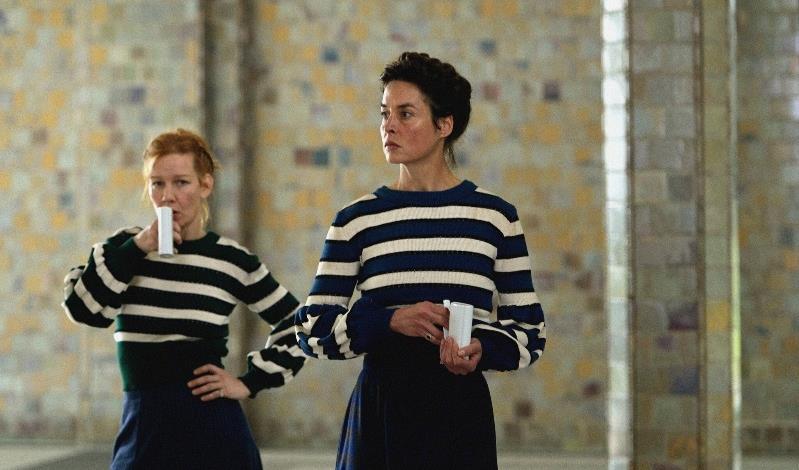
The comparisons between Sisi & I and Corsage will be unavoidable as both pictures tackle the later years in Sisi’s life and take an anachronistic approach to the soundtrack (in this case tunes by Portishead, Le Tigre, and Nico are among the playlist, albeit to lesser effect). But the key difference is that the temperamental royal (Susanne Wolff) in Sisi & I is portrayed through her relationship with lady-inwaiting Countess Irma Grafin von Sztaray (Sandra Hüller), with both getting about equal screen time.
The initially uncertain Irma steps into the position of Sisi’s right hand as the other options for a single, middle-age woman of the time marriage or entering a convent are hardly desirable to her. It takes Irma a moment to acclimate herself to the eccentricities of the Empress’ Full Review

and speculations of Dr Marcia Bjornerud form the hybrid backbone of Deborah Stratman’s strange and slippery new film Last Things. Initially appearing to be a post-apocalyptic tale about what transpires after the decline of humanity, not least due to passages from Rosny’s 1910 novella The Death of the Earth, it instead becomes far more enigmatic as it muses on the very nature of non-human evolution and requires us to step some way outside of our anthropocentric perspective. This is speculative documentary at its most bracingly geological.


VERDICT: The nature and potential of non-human evolution are explored to disquieting effect in Deborah Stratman’s essayistic blend of science fact and science fiction.
Ben Nicholson, February 17, 2023
The nascent science fiction of J.-H. Rosny (the amalgamated pseudonym of Belgian brothers Joseph and Seraphin Boex) and the real-world observations
The use of the more fantastical elements allows Stratman to place us in a potentially post-human mindset, particularly in imagining the earth after all life has been eradicated, only for a new form to emerge amidst the desolation. “To human eyes,” intones Valérie Massadian’s narration, “Earth was dead. Yet another life was evolving for whom this was the time of genesis.” Through its accompanying philosophical and scientific reflections – which encompass the work of Roger Caillois, Lynn Margulis, and Clarice Lispector, amongst others – Last Things places its ostensibly fictional elements in Full Review

VERDICT: This tenderly moving documentary observes a group of Ukrainian children adapting to their new lives, after having been rehomed in former military barracks in Germany.
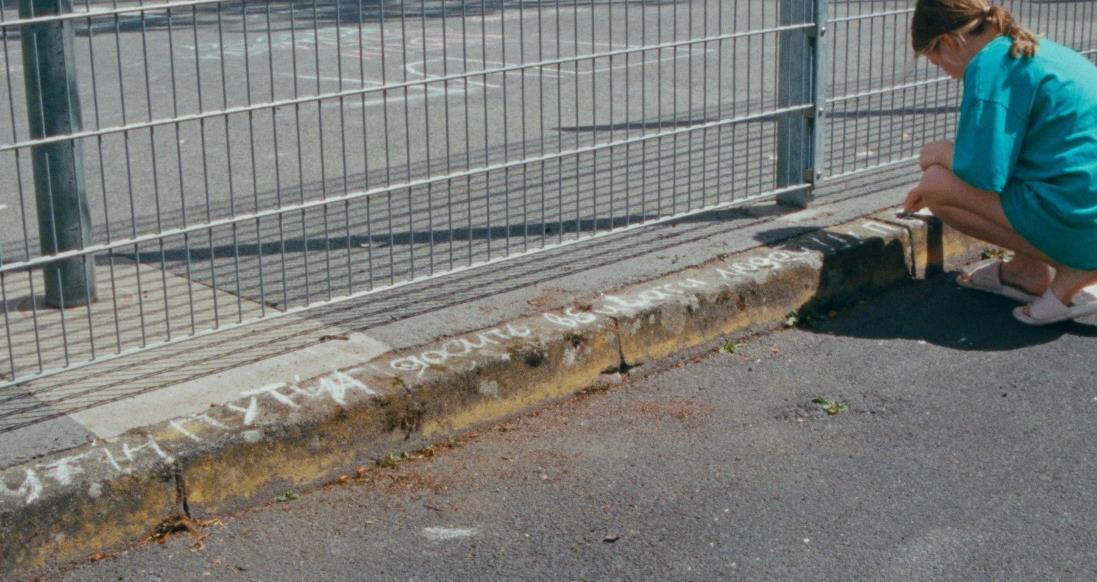
Ben Nicholson, February 20, 2023
A former Wehrmacht military barracks provides a perhaps unlikely place of solace for a group of Ukrainian children fleeing their war-torn home in Mila Zhluktenko and Daniel Asadi Faezi’s Waking Up in Silence
Screening as part of the Berlinale’s Generation Kplus programme, this documentary portrait is the second co-directed by Zhluktenko and Faezi after last year’s Aralkum and while the two films feel very different in some ways, they share a poetic sensibility in the fact of stark political issues. Here, the camera follows several children as they take in a sunny afternoon in their strange new habitat. The film deftly blends the immediacy of a lazy summer evening with past traumas and hopes for the future.
The children play together, exploring old, abandoned buildings, riding their bikes, teaching siblings German, and debating the relative sweetness of local cherries with those back in
Ukraine. Zhluktenko and Faezi present the unextraordinary comings and goings – through the perfectly-judged lensing of their cinematographer Tobias Blickle –in a beautiful golden light and via the warm glow of 16mm celluloid. The effect is one of creating the milieu of a languorous coming-ofage film, but in a situation that couldn’t be further from it. The calls of swifts as they career around above the rooftops intermingle with the playful cries of children down on the ground. The extraordinary power of this coincidence is not lost on the viewer – that of a bird that virtually never lands (even sleeping on the wing), except during breeding season, having settled in nest boxes that adorn the walls of this sanctuary for others that have, only here and now, found respite from the upheaval in their lives.
At one point the camera pans along a frieze of paintings decorating the top Full Review


Bologna-based film curator and director Antonio Bigini is in Berlin with his fiction debut 'The Properties of Metals', premiering in the Generation sidebar.
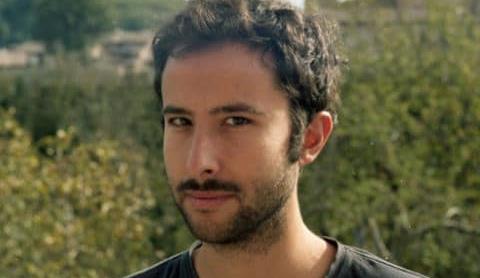
The Film Verdict: After two documentaries, what made you decide to make you first fiction film?
Antonio Bigini: It was not a given. It’s always about the stories that come my way, and one of them was about this young boy in the 1970s who supposedly could bend metals and was studied by an American professor. Because I really wanted to tell the story from the children’s vantage point, fiction was the best solution.
TFV: The professor is played by American actor David Pasquesi, in what is otherwise a very Italian film. How did that come about?
AB: I’d heard from a friend that he spends roughly half the year in Bologna, where I live. So, when we started casting, I took the chance and reached out to him with a message on Instagram. He agreed to read the script, and while I was worried our budget might not be able to accommodate his asking price, he never made it about money and agreed to be in the film because he really responded to the material and the role.
TFV: How was the experience of directing child actors?
AB: Very interesting. Children have a good and honest way of challenging you on the set. I found myself amending the script when they pointed out the scene as originally written didn’t quite work for them.
TFV: Of course, because the film is premiering in the Generation section, younger viewers will be attending the screenings. Are you looking forward to the Q&As?
AB: I love that the Berlinale has that kind of sidebar, and yes, that’s going to be interesting. I don’t think I made a children’s film, per se, but connecting with that kind of audience is something I’m definitely looking forward to.
TFV: You’ve also worked as a curator at the Cineteca di Bologna. Did that inform your directorial personality?
AB: That’s an interesting question. I definitely think organizing exhibitions and coordinating everything prepared me for the experience of being on a film set.
Full Interview
– Max Borg
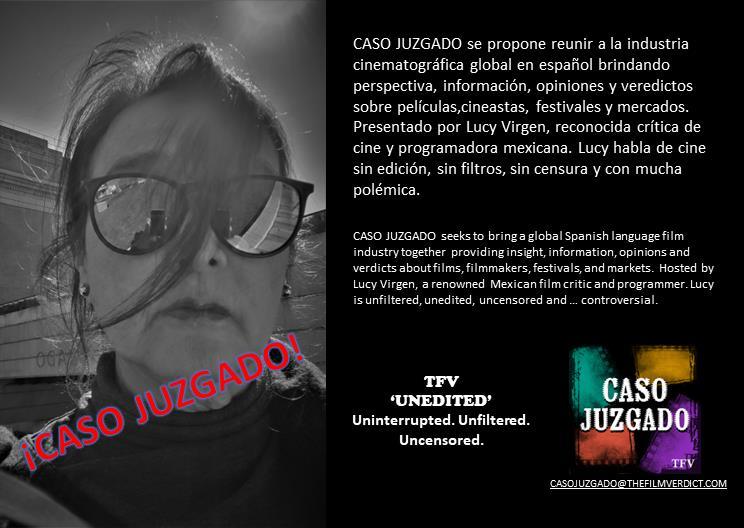
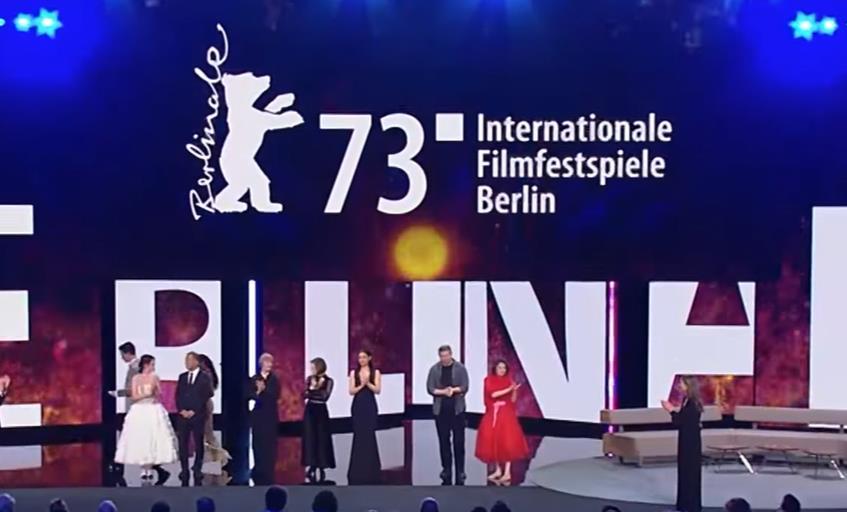
which was a Medusa production that sold n 50 countries and also led to over 30 remakes all over the world. We also produced Welcome to the South - and its sequel, Welcome to the North - which was a remake of the French film Welcome to the Sticks that we had distributed in Italy two years earlier. Last year, we worked hard to get Mario Martone’s Nostalgia on the Academy Awards’ short list. This allowed me to get back in touch with old acquaintances and to travel to many cities like London, Paris, Berlin, New York, Los Angeles, and Denver to promote the film. In my travels, I saw for myself that Medusa enjoys a strong image abroad. And, last but not least, there was Paolo
Giampaolo Letta is arguably the most powerful man in Italy’s film industry. He hails from an influential Italian family. His father, Gianni, is a well-known journalist and politician who was undersecretary of state in four Silvio Berlusconi governments. His cousin, Enrico, was himself prime minister of one of Italy’s short-lived governments. Letta became vice president and CEO of Medusa Films in 2004. He produced The Great Beauty, Italy’s last Oscar-winning movie.

The Film Verdict: Thank you for taking the time to sit down with The Film Verdict. We understand that you don’t often grant interviews. So, lets jump in. You personally guided the image and perception of Medusa very carefully over the last years. How do you believe Medusa is perceived outside of Italy today?
Giampaolo: We have always been very active internationally over the many phases of Medusa’s existence. Up until eight or nine years ago, we were very active as buyers. We distributed many films in Italy, from Lord of the Rings to all Woody Allen films, Roman Polanski, and many other important films. Then, we changed our approach a little and started to concentrate more on Italian films. Medusa had always offered Italian films in the international markets, from Giuseppe Tornatore to Bernardo Bertolucci flicks and many others that were coproductions with foreign partners. We coproduced Woody Allen’s To Rome With Love, which was a great success. He had just finished Midnight in Paris and wanted to shoot a film in Rome, and since we were his long-time partners in Italy, we decided to produce the film together. Another successful example is Paolo Genovese’s Perfect Strangers,
Sorrentino’s The Great Beauty that won the Best Foreign Language Film at the 86th Academy Awards in 2013. I am very proud of what we have done so far
TFV: As the largest private Italian film company, do you feel a certain responsibility to ‘Italian film’? How do you contribute to it?
Giampaolo:: We pay attention to every aspect of it. Traditionally, Medusa invested in box office hits, classical comedies, like the films of the trio of comedians known as Aldo, Giovanni and Giacomo, or commedia all’italiana, like Perfect Strangers. We pay attention in particular to new talents, trying to discover them wherever they might be, like Edoardo De Angelis, whose career we launched. Last year, we brought a young director, Francesco Costabile, to Berlin with his first film. He is now working on a new
Con Noi. We are paying attention to high quality Italian films of all genres.
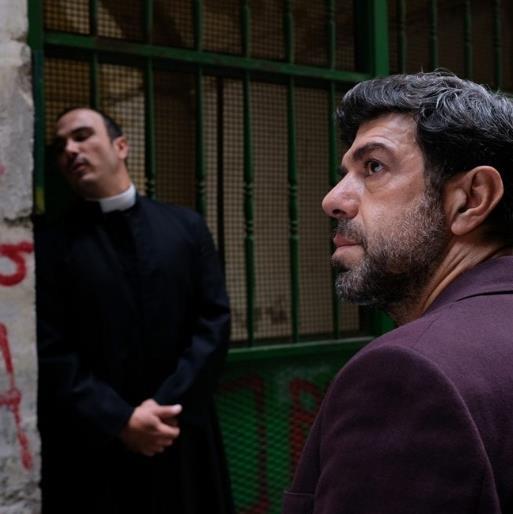
TFV: Speaking of quality, over the last years streamers such as Netflix and Amazon have expanded aggressively into international feature films. How has this impacted Italian filmmakers’ mentality as a ‘pay and play’? Has it changed the way Medusa produces and distributes its films?
of those who see the streamers pitted against the theatres and the distributors. I think the streamers are our new partners – and very important ones at that. This trend had already started before the pandemic but was accelerated by the lockdown. The streamers can circulate Italian films around the world, and they bring significant resources to us. Now that the pandemic is over, I think we are going toward an equilibrium in the relationship between streamers.
added value that stays with the film. In other words, a film that has had success in the theatres does much better when it is streamed on the platforms or on free TV. Then there are those films that can be produced for TV or for the streamers, skipping the theatrical release. In this sense, we have a wider market now, thanks to the streamers
TFV: Does this have any effect on Italian creativity? Do producers and directors enjoy creative freedom, or do they have to follow the algorithms?
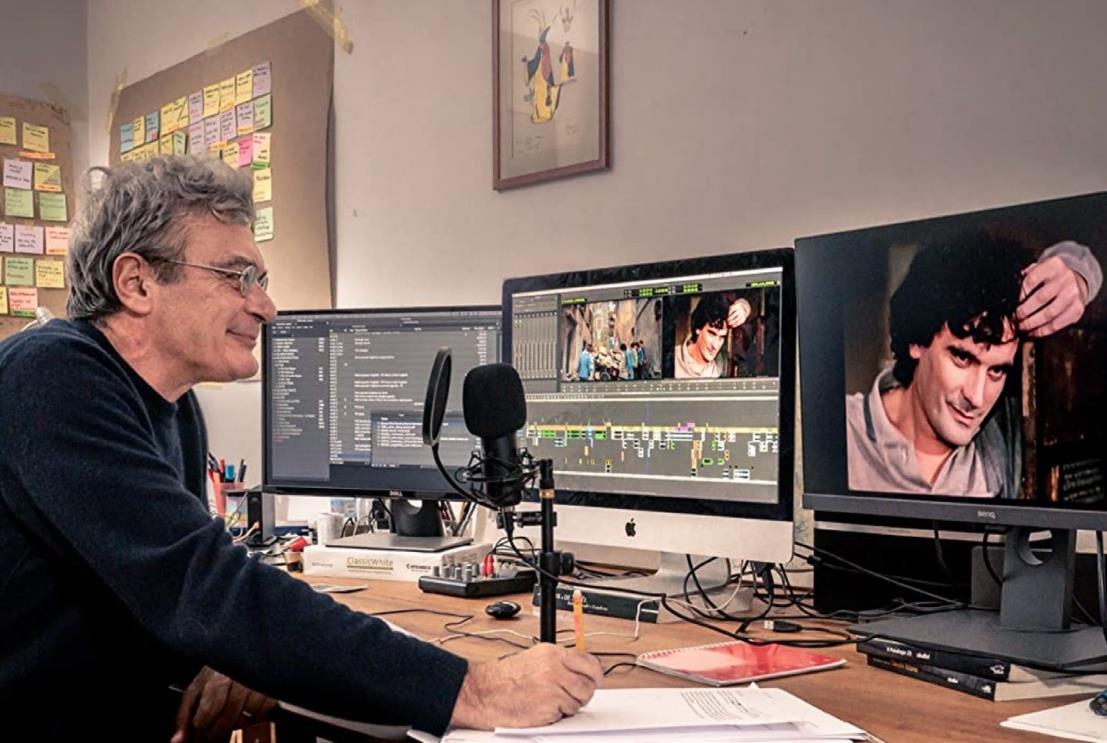

Nostalgia, 95th Academy Awards short listed Giampaolo:: No. During the lockdown, when the movie theatres were closed, we licensed films that had been ready for release directly to the streamers: Prime Video in particular. I think that in general the advent of the streamers has been very positive in that it has opened up and expanded the market in a significant way, not just for feature films but also for TV series. In this way, it has allowed the industry and individual producers to grow significantly. Theatrical distribution is a key part of our activities, but we also work with the streamers. The advent of the platforms has clearly changed both our habits and the face of the market in the past three years, but the results of the Italian theatrical releases in the past six months have been very encouraging. I am not one
A Great Beauty 86th Academy Awards Winner distributors, and movie theatres. For many films, the theatrical release is still very important because it gives the film and the actors greater visibility and an
Giampaolo: I hear a lot of talk about this, but honestly, from my personal experience, when we meet to negotiate, I see that our partners are specifically looking for Italian creativity. Algorithms may suggest a direction or a tar- get audience, but I personally haven’t seen any interference in the creative process. On the contrary, the streamers place great value on our creativity. Besides, streamers look for Italian creativity.

Acquisition begins with a TFV Review
Money, Freedom, a Story of CFA Franc
VERDICT: Lena Ndiaye’s documentary may be the most important contemporary document on Francophone Africa’s malignant economic relations with France

17:00 CinemaxX 13
World Cinema Fund

VERDICT: An isolated Danish family encounter spooky doubles of themselves in this haunting, twist-heavy thriller from first-time feature director Karoline Lyngbye.

09:20 Virtual Cinema 3
TrustNordisk
Narcosis
Men and Gods.
The Wonders of the Museo Egizio (Nexo Digital) 16:35 CinemaxX 5
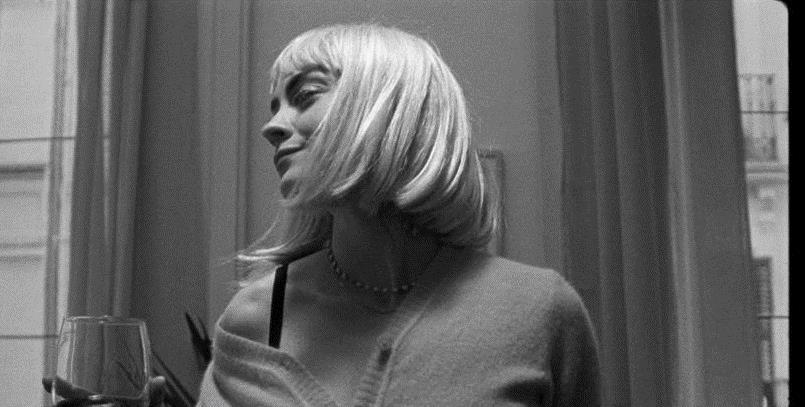
Stams
(Rise and Shine World Sales) 17:00 Virtual Cinema 6
Bad Connection (Nicely Entertainment)
17:30 Virtual Cinema 3
The Burdened (Films Boutique) 16:10
CinemaxX 11
VERDICT: A layered, mellow rom-com follows an aspiring, insecure actress torn between two love interests and careers in modern-day Madrid.
10:45 CinemaxX12
Best Friend Forever
Wednesday, 22 February
Borders of Love
VERDICT: A couple decide to broaden their sexual horizons with increasingly com- plicated results in Tomasz Winski’s knotty and intimate examination of honesty within relationship dynamics.

14:00 Virtual Cinema 8 Loco Films
Professor Longhair: Rugged & Funky (Doc ‘n Roll Films) 13:10 Virtual Cinema 5
Kiddo
(SKOOP Media) 14:00 CinemaxX 11

The Jew
(Cité Films) 14:40 Virtual Cinema 5

Enter The Slipstream
(Visit Films) 15:15 Virtual Cinema10